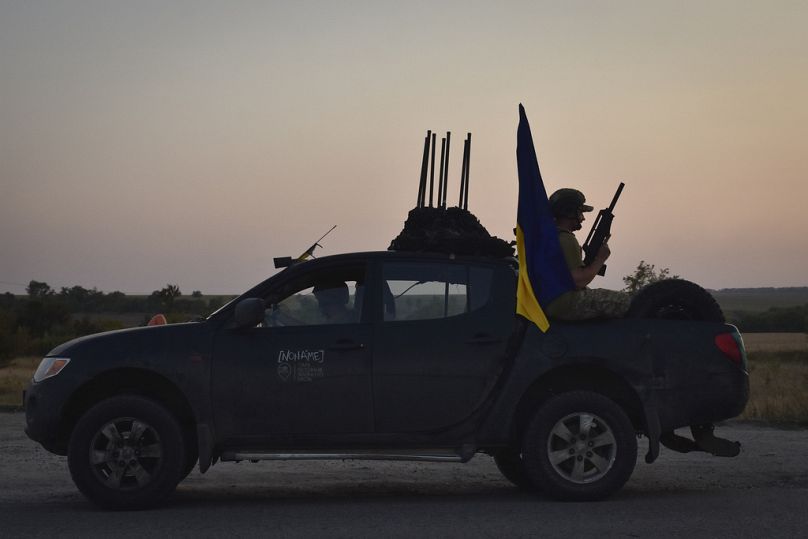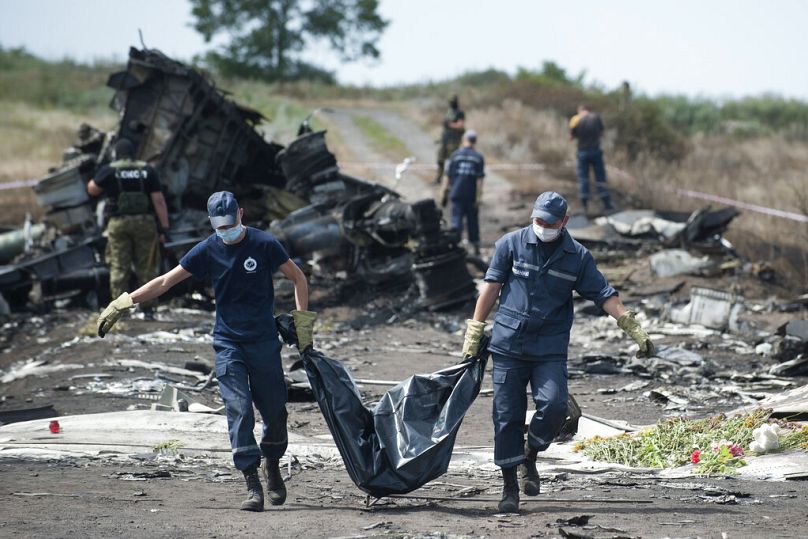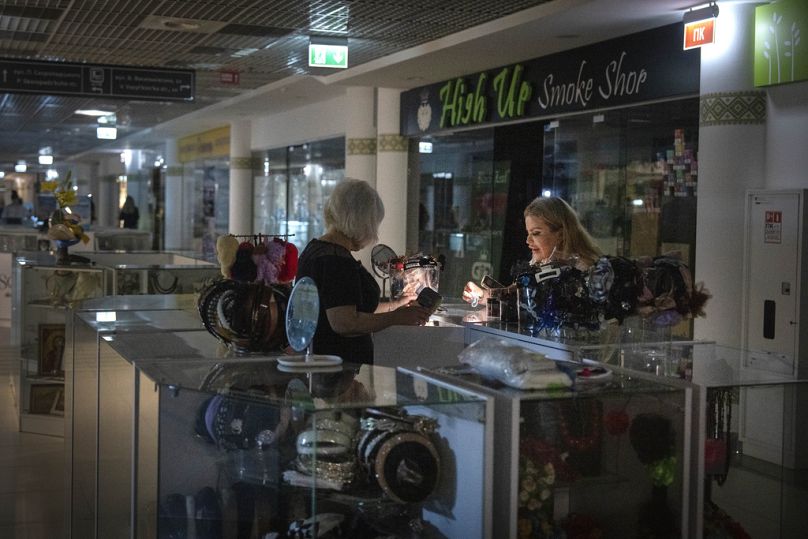Experts warn that politicians need to take Russia's so-called "hybrid war'' more seriously and populations should be better prepared.
Since the start of the full-scale Russian invasion of Ukraine in 2022 the war has been reported on daily. At the same time Russia is waging a second war that is making fewer headlines.
 ADVERTISEMENT
ADVERTISEMENT
 ADVERTISEMENT
ADVERTISEMENT
Russia's so-called "second war" is directed against the West. "It is a war against (a Western) democratic model," says Eastern Europe expert Franziska Davies.
Difficult to define, features of what experts have called Russia's "hybrid war" include everything that does not involve direct military confrontation. According to Davies, actions carried out by Russia have one unifying goal: to weaken and destabilise the West.
One example of Russia's hybrid warfare is the uncovered plot to assassinate the CEO of Rheinmetall, a German automotive and arms manufacturer based in Dusseldorf earlier this month. The plot, first reported by US broadcaster CNN, was one of a broader plan to attack executives at European defence companies that manufacture weapons delivered to Ukraine.
"What Russia is ultimately striving for is a Europe where Russia can enforce its goals regardless of international rules and laws. A Europe in which Russia can exercise power by force," explains Franziska Davies from Ludwig-Maximilians-Universität in Munich.
The threat of online fake news
Experts say Russia's hybrid war is made up of several strategies: hacking, attacks on individuals or disinformation and fake news. "We are all targets of these campaigns to influence information," says Tapio Pyysalo, Head of International Relations at the European Centre of Excellence for Countering Hybrid Threats.
Before the European elections in June, there was a coordinated attempt to share targeted pro-Russian, anti-vaccine and anti-LGBTQ campaigns on social media.
The Dutch private research institute Trollrensics found that a large disinformation campaign in Germany promoted and shared content in favour of the far-right German political party Alternative for Germany (AfD).The company suspects that the bots behind this content come from Russian or pro-Russian circles.
Although many European countries have improved their security measures against hybrid attacks since Russia's annexation of Crimea in 2014, Finnish expert Pyysalo warns that as countries would be better prepared to face threats if they shared data with one another. Such data sharing, however, often runs counter to individual countries national security laws.
"What democratic states still need to do is generally strengthen their legislation to close gaps that are used by hybrid actors," Pyysalo said.
How to recognise disinformation?
What needs to happen on a daily basis and what everyone can do is recognise fake news and not spread it, says Pyysalo. "Everyone should play a role in verifying information and making sure that everything they spread is based on facts and not disinformation narratives."
It helps that disinformation campaigns spread by Russia often follow similar patterns, explains Dr Frank Sauer, security policy expert at the Bundeswehr University Munich.
"It doesn't matter whether it's about the MH17 downing or the bombing of the children's hospital in Kiev: it's always first said that it was insane, then it was the others and in the end it's: 'Okay, it was us, but they deserved it'" Sauer said.
Experts say that to expose disinformation campaigns, it is worth checking whether other media outlets independently verify the information shared. It is also important to check the source of the news, such as which social media profile it originated from.
A Ukrainian Ministry of Defence manual on debunking fake news points out that the usernames of X profiles are often random combinations of numbers, and fake profiles often use old or randomly selected images directly from Google results.
According to Sauer, the aim of Russia's disinformation is: "To leave people feeling powerless and convinced that they can never know the truth anyway."
However, hybrid attacks can extend beyond the online sphere. Finnish hybrid threat expert Tapio Pyysalo, says that critical infrastructure in the rest of Europe could also be targeted by Russia, much like Russian attacks on energy infrastructure in Ukraine.
He does not want to cause concern, but "people should be prepared for all kinds of disruptions, for example in the supply of critical services or critical food."
Pyysalo summarises: "Be prepared for the worst, but of course hope for the best."
Germany's "nightmare scenario"
In Germany, Europe's biggest economy and a target for multiple attacks suspected to be from Russia, the worst - the "absolute nightmare scenario" - is what Frank Sauer calls a total power blackout.
"The general population is not well prepared for such situations. We simply assume that the weather will always be pleasant, the water will come out of the tap and there will be food in the supermarket," explains Sauer.
The German Federal Office of Civil Protection and Disaster Assistance has taken steps to draw up supply lists, advising people to stock up on enough food for ten days and two litres of liquid per person per day. As part of its advice, an emergency first-aid kit should be available and important documents should be stored to be taken with you quickly in an emergency.
Need to build up civil resistance
In such possible exceptional situations, Sauer maintains that building up civilian resistance is more important than strengthening the military.
The German security expert explains: "We basically need reserves of people who can help in an emergency. We need people who can stack sandbags and get the emergency generators out of the hall and start them up."
In Germany, the aim should be to ensure that "in an emergency, we can organise things so that everyone has a warm blanket, children have a corner to play in, we have emergency power generators where mobile phones can be charged and someone can cook soup."
Sauer emphasises that this is not only important in the event of external attacks on the infrastructure; power outages can also be triggered by the climate crisis.
His hope is "that there is a broad social consensus that we as a society should invest money, but also time." He is talking, for example, about citizens spending twelve months at the Federal Agency for Technical Relief, the fire brigade, the Red Cross or even the German Armed Forces. "So that I know what to do if something breaks down in my community or neighbourhood."













